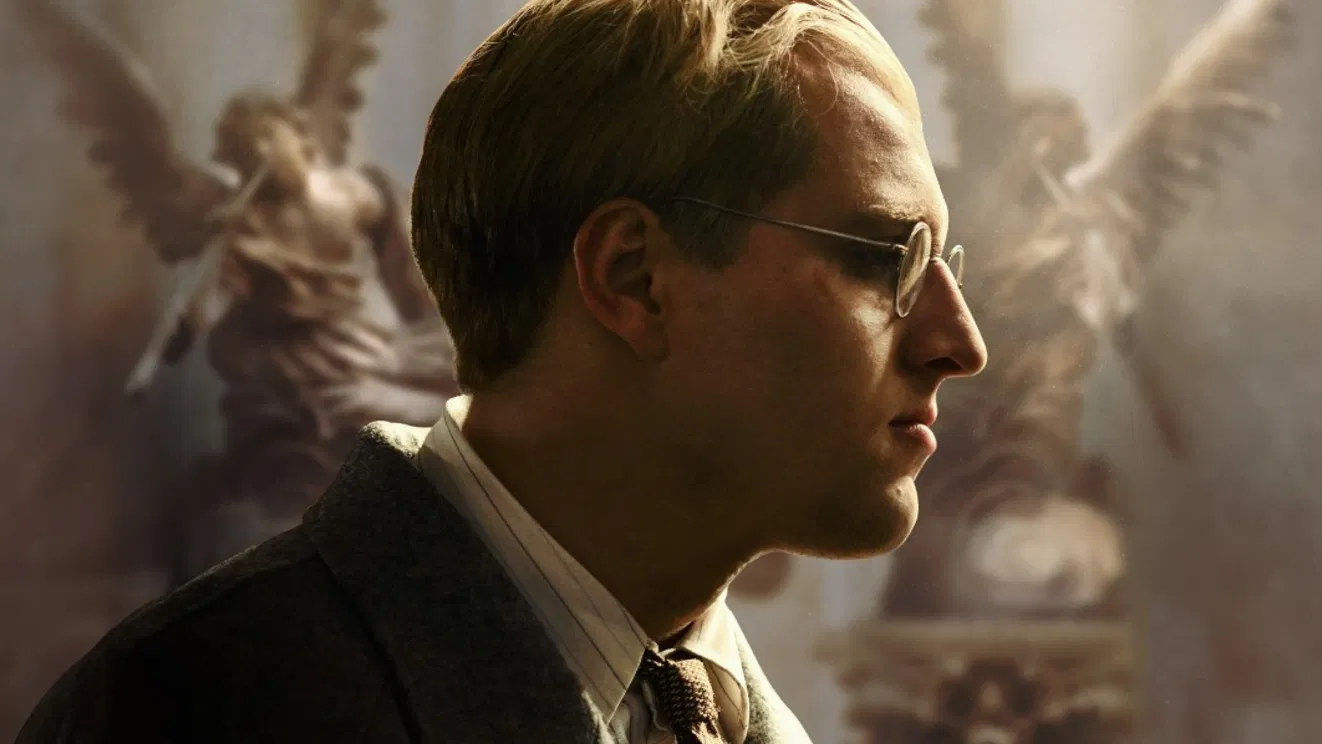By Keith Walther | Rose Law Group Reporter
Yes, it is another World War II story to add to the ever-growing list, but don’t write it off just yet. “Bonhoeffer: Pastor. Spy. Assassin.” is the unique true story of a man who takes a brave stand against the Nazi regime from within, and it feels as long as its title. While the story itself is quite compelling, the execution is messy, leading to an uneventful filmgoing experience.
Theology and faith have always been a passion for Dietrich Bonhoeffer (Jonas Dassler), taking him from Germany to New York City in the early 1930s. As he continued his studies abroad, he meets Frank Fisher (David Jonsson), who opens his eyes to wonderful new experiences like jazz music and deep conversations with Reverend Powell Sr. (Clarke Peters). This also opens his eyes to the existence of hate in the world, even from people who follow the same God.
When he returns to Germany, he finds that the Nazi party has gained power and influence with Hitler being elected Chancellor. As a pastor of the Lutheran Church, Bonhoeffer uses his own influence to stand up against the Nazis, putting his own life in jeopardy. With the persecution of the Jews by the Nazis, Bonhoeffer desperately involves himself in a plot to assassinate Hitler in order to derail the planned genocide.

This is only the second feature length film writer Todd Komarnicki has directed, with his first being a horrible film from 2003 entitled “Resistance.” He returns to the WWII genre with a better effort; however, his inexperience cannot be avoided. This is a powerful true story that should be rather easy to elicit an emotional response, but Komarnicki chooses to format the retelling of this story in a non-linear way, creating a multitude of confusing flashbacks and flashforwards that steal the impact of important scenes. Cutting the film up in this way also bogs it down and slows the pace to a crawl, which loses the audiences’ emotional investment as well as attention. This is unfortunate, because if he had told this story in a more chronological way, not only would viewers have been more attached to this historical figure, but it could have turned a sloppily relayed story into a powerhouse of a Best Picture candidate. It also does not help that the living members of the Bonhoeffer family have denounced this film, mainly for it being used to further particular political agendas.
Komarnicki does get plenty of things right in the making of this film like showing the perspective of German dissidents, which is a rare point of view in WWII films. The cinematography is outstanding, using a number of creative shots and angles that break up the monotony of the story. Coincidentally, John Mathieson, who handled the camera duties for “Gladiator II,” is the cinematographer for this film, and he does a far superior job here. Todd also incorporates a strong musical score, mixing orchestral numbers with jazz that complement the movie well.

The acting by the entire cast is solid from top to bottom, led by a distinguished performance from the lead, Jonas Dassler. This is a major career steppingstone for the young German born actor who has only ever had exposure in German made films until now. He doesn’t get lost in the moment, carefully showing a naïve innocence that erodes in the face of evil. One can’t help but wonder how much passion in his performance was lost due to concentrating on speaking and enunciating in English rather than his native German language. Whatever the case, while he provides a fine performance, the lack of sincere passion will keep him out of any acting award discussions.
On one hand, “Bonhoeffer: Pastor. Spy. Assassin.” sheds light on this heroic German figure that everyone should familiarize themselves with, but on the other hand, it plays a little too loose with historical fact and is told in a fatiguing manner. It has powerful messaging and well-written dialogue that simply lacks emotional inflection. If you do see it, make sure you’ve had plenty of coffee beforehand, because its plodding pace can lull you to sleep.
This movie earns:






